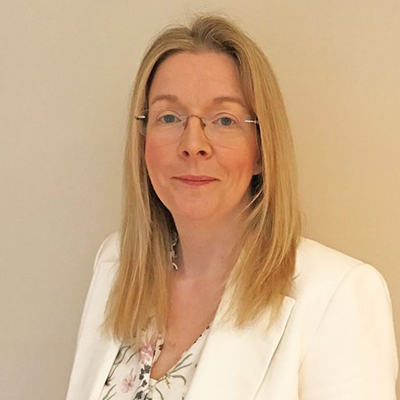Having worked both in big tech and for start-ups, Emma Maslen brings a unique perspective to talent. She talks to Erevena’s Jamie Dalton about her career and how to motivate high performing go-to-market teams in an era of talent scarcity following the ‘great resignation’ – and why it’s a good idea not to burn your bridges on your career trajectory.
What are you currently doing?
Alongside some angel investing, I’m running my own consulting company inspir’em, which I founded in 2019. We work with CEOs and founders to develop and operationalize their go-to-market strategy, helping companies hire the right people and embedding MEDDIC (sales qualification methodology) in their sales organizations. In fact, for the for the last few years, I’ve largely been working with early-stage and scale-up businesses.
How did you get started on this career path?
Like many people, I fell into tech having left school with GCSEs but no A levels. I worked for a couple of companies before ending up at Ingram Micro, which has now become a very large IT distributor. I then joined an IBM reseller and stayed with them for about four years. That was my entry into sales and tech after Ingram Micro and at the age of 20, I found myself doing $6 million deals with people like UBS. I’d never expected to be in sales but somehow managed to build respected and productive relationships very quickly, which was handy. I became like a trusted advisor and built a good rapport with my customers, so was very successful.
You then moved to Sun Microsystems – tell us about that
This took me out to the US where I managed several partners as well as the Royal Bank of Scotland account for Sun in the UK. I took that business to about 600% growth and had a great time there. Then when Oracle took over Sun, I went to work successfully for BMC for seven years, during which time I also had both my children.
Your career then took a change in direction – how did that happen?
I went to run a business for SAP around Concur, which is the largest business for Concur in Europe. That was a slight departure, because I’d previously only been in sales roles but this was a full managing director role, with responsibility for profit and loss. It was a great development opportunity to manage all aspects of the business, not just sales. That was also where I started to take a bit of a detour because I was invited to do some angel investing. I met Sarah Turner from Angel Academe and started to work with female founders or mixed founders to help early-stage businesses.
What challenges do early-stage businesses face when they want to scale?
They’re piecing together the puzzle of how to grow. Where do they invest first? How do they operationalize the go to market engine? Who should they hire? One of the biggest pieces in the puzzle is that people think the first step to growth is to get in a professional salesperson, but these people are often really expensive to hire. Instead, where I’ve seen a business being hugely successful is when they’ve started with a customer success person, rather than a salesperson. They’ve focused on really looking after and harnessing the power of existing customers, making them brand advocates and ambassadors for the business.
Of course, when the time is right to hire a salesperson, I would advise not to go cheap. There’s a level of experience, entrepreneurship and playbook required as the first salesperson on the ground – that a youngster who’s not done it before simply doesn’t have.
What other advice would you give for operationalizing a company in growth?
Start-ups often struggle with where to focus. They begin doing well and pick up lots of different types of customers. But I’d recommend focusing initially on just one industry in which they can build their credibility and expertise.
Another challenge – and a bugbear of mine – is that a lot of companies don’t invest enough in enablement. So, they hire all these people who can’t pitch the products and don’t know the customer stories. Then the company wonders why, six months after they’ve been hired, new joiners aren’t productive, are getting disheartened and leaving the business. The best salespeople are credible value-based storytellers, so teach the stories early.
What do you look for in hiring for a start-up or scaling business?
Coachability and humility have got to be the number one and two hiring criteria. Let’s say you hire somebody in as a head of sales and they understand that they’ve got a long way to go to be a CRO. They might have invested in the company and be doing well. A salesperson like this shouldn’t be afraid of somebody joining the business above them as CRO. But if they’re not coachable and haven’t got the humility to learn from that CRO, they’re going to struggle with the situation, and then they’ll leave.
You’re talking about ‘humility’ in sales – is that hard to find?
It’s true that sales can attract diva-ish behaviour, which doesn’t suggest humility. At one company I worked for that had a largely male dominated sales force diva-type behaviour was stereotypical. At that time, these were seen as the perfect hires drive growth but I think the pendulum is swinging back the other way, where companies andcustomers are now looking for a more consultative, advisory relationship. This takes me back to my earlier point about the value of customer success managers and why they are great assets in any business.
Are women better suited to this more consultative approach?
In my opinion, customers see women as less ‘sales-y’ than men. Women can be disarming and there tends to be less ego involved. That’s why when you look at customer success managers, there’s a huge female demographic. They get things done, are perceived to be reliable and are organized. After all, they’re often juggling a lot of stuff, so are resilient. It’s an interesting debate. I’ve also had conversations recently about why we can’t retrain mature over-fifties women to be salespeople – is this a gap in the talent market we’re missing?
You mention training – is that part of professionalizing sales?
I do think we’re in something of a dangerous position in the UK around this topic. In the US, for example, sales is seen as a respected profession. It’s something that you can study and carries a lot of gravitas. Compare that to the UK where sales isn’t viewed in the same way. We don’t think about a formal education for going into sales, rather hiring might be around whether somebody has EQ. IQ, grit, character, coachability. We check if they got some sort of track record and are they curious? Sales leaders aren’t looking for an academic background when they’re hiring, rather it’s more about life choices. Maybe in the future, someone will develop a more formal, academic path into sales.
Can internal academies pick up on this training need?
Many organizations have recognized that this is a problem. Because of what’s going on with the ‘great resignation’ and the talent market being as hard as it is, we’re seeing companies trying to create internal academies. This is something I am helping with more and more. Companies are bringing in external coaches to help them shape some of the training content. They’re asking how best to take somebody that’s straight out of university, or an apprentice who’s just left school, and teach them some basic sales competencies. Tied with that is the question of how you keep them in the company once they’ve finished the academy. In today’s difficult talent market there will always be other companies looking to tempt them away with a better paid job.
How do you encourage more women into sales?
We need more female role models to get out there and talk about their experiences. There are so many women who don’t consider themselves to be role models but, by just being there, they are. I know some amazing female salespeople who could do that but don’t, perhaps because they’re suffering from imposter syndrome. I think the academies could help with this by featuring female leaders.
We also need to talk about a career in sales differently. We should be promoting it more as solution selling and being a trusted adviser and move away from the sales mantra of ‘work hard, play hard’. For anyone with families who can’t go to the pub with their sales colleagues at the end of the day, ‘work hard, play hard’ is not an attractive message.
How we word recruitment ads needs to change too, for example not all salespeople have the ‘outgoing personalities’ we often see referred to in ads. In fact, several times during the selection process I’ve pushed to hire more introverted candidates against the better judgement of other members of the selection panel who felt they wouldn’t be able to win over customers. I’ve been proved right when the candidates go on to become hugely successful salespeople.
How do you advise your clients on retaining and motivating a go-to-market team?
The younger generation coming into sales needs to see frequent wins. They often have short attention spans and I advise having a constant bonus or gifting culture, or something along those lines, so that they see wins and progression. This need to see wins is probably a product of everyone working from home, which can be quite isolating. So, it’s important to do something that makes people feel valued.
You’ve also been focusing on alumni in the recruitment cycle – can you tell us more?
One of my latest projects has left me wondering whether employee mobility is inevitable. You can’t assume people will stay with your company, but what if they want to come back further down the line or engage with you in a different way? Should we be enabling those people to go on and be successful in their career, gaining new skills elsewhere but leaving the door open for them to return, rather than thinking that they mustn’t leave? I’ve been working with a company recently that focuses on alumni programmes with just that kind of thinking – employee mobility isn’t a bad thing, rather by keeping those leavers within a mentoring circle or alumni network they become part of the future talent pool. So, a salesperson shouldn’t be viewed as ‘dead’ to the company if they leave as has often been the case in the past, rather as potential returnees, or even as customers because many consultants go on to work with their client companies!
How does an alumni network benefit the candidates?
Alumni often reach a stage in their career when they want to return to somewhere they’ve been before, bringing the skills and experience they’ve acquired along the way. There are certain companies I’ve worked for in the past that I still feel very fondly about, so I understand that. In fact, a female salesperson recently said to me ‘never say never’ when it comes to your career choices. The world of tech is quite a small place so if you think about a typical start-up cycle, you might work for a big company, then go and work for a smaller company in that industry because they’re looking for somebody to help them scale up. The likelihood is you’ll get bought by the company that you started with! In other words, don’t burn your bridges when you move on.
What do you enjoy most in your current advisory role?
I love what I’m doing right now. Working with the start-ups and the scale-ups and sharing a few little gems from the experience I’ve had, then seeing them take that and do something really great with it, is so rewarding. When you work with a large organisation it’s hard to see the impact you’re making on the company, whereas in the smaller businesses, you quickly see results. Then you think, OK, I’ve done something good. That really floats my boat!
Share this article:












